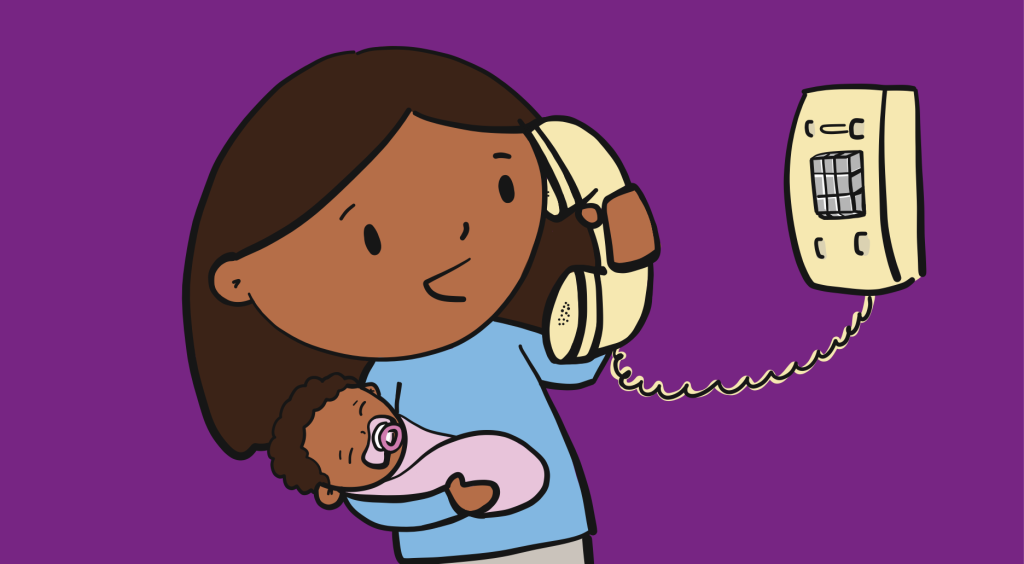You’ve been off the job market for quite some time now raising kids, or doing whatever else you needed to do; family obligations, illness, travel, education, etc. If you’re ready to get back to the nine-to-five, you’ll need to start thinking about professional references. This might be a challenge if you have been “off-the-job” for an extended length of time; especially if you haven’t done a great job at staying in touch with professional connections.
Don’t underestimate the importance of references
If you think the process of reference checking ends with the “references available upon request” line on your resumé, think again. According to a survey completed by the SHRM, more than 80% of employers conduct reference checks, and, in another study completed by CareerBuilder, approximately 69% of employers change their opinion about a candidate after speaking with a reference. The numbers say it best: landing a job has as much to do with what people say about you as it does with skills and experience. That’s why it’s imperative to gather the right references from the start.
Selecting the right references
Too many people think you should limit yourself to including past supervisors or company HR managers in your list of references. However, this couldn’t be further from the truth. Someone from the Human Resources department can provide your prospective employer with information regarding dates of employment, but they cannot communicate information about who you are. A good reference is someone you’ve worked with. It’s someone who has witnessed both your achievements and how you have reacted to difficulties or complications—it’s someone who has seen you grow within the organization.
Finding the right reference might feel like an impossible task, but it isn’t. Think back. Did you have this type of relationship with your immediate supervisors? If not, maybe someone else might fit this description. A project manager you reported to while being part of a special project, a major client, or even a member of your staff (if you are applying for a manager position). Regardless of who you choose, this person needs to be able to attest to your skills and expertise. Depending on your years of experience and the job you’re applying for, try to think of at least three potential references. Also, while it’s okay to think outside the box, avoid using these types of references:
- Peers. Coworkers won’t necessarily understand your role’s objectives within the organization. Someone in a managing role — even if from a different department, will understand the big picture, and, therefore, be a more suited reference to prospective employers.
- Members of associations you volunteered for. An increasing number of companies will only consider references obtained from a “paid” work experience. Volunteer references should therefore only be used as a last resort.
- Teachers or professors. Although they can attest to your character, teachers or professors will not be able to comment on your professionalism, skills, or even how you will react under pressure.
Tracking down your references
Now it’s time to track down your references. Following a long absence from the job market, how will you find them? If you no longer have their mobile number or personal email address, start with your past place of employment. Are they still working for the same company? If not (which is usually the case), try to find them online. For career advancement purposes, most professionals ensure that they can be tracked down. Utilize Facebook, LinkedIn, a contact page of their current employer, etc.
Making first contact with a reference
Most people don’t like to be put “on the spot”. Whenever possible, make your first contact in writing. Your message should be informally professional, honest, and to the point. Your message should also include the following points:
- Acknowledge time has past
- Mention what you’ve been up to
- Mention your plans of getting back to work and needing a reference
- Provide your contact information and ask for theirs
Simple enough?
Here’s a sample note:
Hi James, This is Jennifer Shewan. We worked together at Corporate. I hope all is well! For the past three years I have been home raising my twin boys: Thomas and Kevin. They have started going to daycare and I’m ready to get back on the job market! I was wondering if I could use you as a reference. I’m looking for work in event planning and I remember how well we worked together on the planning of Corporate’s 10th anniversary celebration. If you remember, the event ended up being a success and we delivered it under budget! I would love to reconnect. Would you be available for a short telephone call next week? Please provide me with your number and availability. Otherwise, my contact information is below. Please call anytime! Thank you so much for your time. Looking forward to hearing from you, -Jennifer
Once you’ve reconnected, be personal but not fake
In other words, don’t beat around the bush. Especially if this is someone you were close with but failed to keep in touch, apologize for the break in the relationship. Tell them what you’ve been up to and ask them about how they’re doing. Be genuine.
Once the small talk is done, discuss the job you’re hoping to land. Make sure to mention your past accomplishments and/or projects you worked on together, as well as the points you’d like them to discuss with your prospective employer.
Finally, make sure to thank them and tell them you are available to answer any other questions they might have. Also, mention that you’ll be updating them by email on the development of your job search.
Keep your reference on track
People get busy. That’s why it’s imperative that you stay connected with your references throughout your job search. Update them regularly on any development, without being annoying. Usually, employers will only ask for references if they’re interested in your candidature. If this happens, let your reference know about it by sending them a few lines by email. The information should include the name of the company you’re interviewing with, the job title and a short job description. Also, mention if the prospective employer has confirmed when they will be conducting the reference check. This will allow your reference to prep, and, hopefully, sell you better.
In turn, be accessible to your reference throughout the process. If you receive a question from them by email, respond immediately. Remember that they are under no obligation to help you. They should never feel frustrated about this process.
No matter the outcome, say thank you
Whether or not this process lands you the job of your dreams, make sure to thank all the people who agreed to be your references. When all is said and done, sending thank you cards is a gesture you should definitely consider.
Some people might go above and beyond to help you. In such cases, an invitation out to lunch could be a great way to acknowledge the person’s efforts. If that’s not possible due to conflicting schedules or location, think about sending them a personal gift. A fancy paperweight, a luxury pen, or even a chess set would help you express your gratitude.
Finally, now that you’re back on the job market, keep in touch with your connections. You might need their help again in the future! Sending holiday cards, for example, is a simple step that can help you stay connected.



